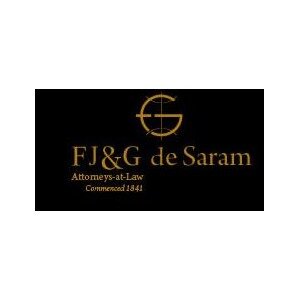Best Elder Abuse Law Lawyers in Sri Lanka
Share your needs with us, get contacted by law firms.
Free. Takes 2 min.
Or refine your search by selecting a city:
List of the best lawyers in Sri Lanka
About Elder Abuse Law in Sri Lanka
Elder Abuse Law in Sri Lanka is a critical aspect of the legal framework aimed at protecting the rights and well-being of older adults. Elder abuse can manifest in various forms, including physical, emotional, financial, and neglect. While the country is striving to implement robust measures to safeguard seniors, awareness of legal protections and recourse options remains essential. The Sri Lankan government, recognizing the vulnerability of the elderly population, has introduced policies and acts aimed at prevention and protection from elder abuse.
Why You May Need a Lawyer
Engaging a lawyer specializing in Elder Abuse Law may be necessary in several situations. If you suspect elder abuse in any form, having legal representation can ensure the rights of the older person are upheld and that necessary legal actions are taken. A lawyer can provide guidance through the complexities of local legal procedures, help in filing claims for financial exploitation, and represent the elder or their family in court or before governmental agencies. Legal support can also be vital when seeking restraining orders or pursuing compensation for injuries or neglect.
Local Laws Overview
Several key aspects of local laws relate to Elder Abuse Law in Sri Lanka. The "Protection of the Rights of Elders Act, No. 9 of 2000" is a pivotal piece of legislation that outlines the rights and protections afforded to older adults. This act provides for the establishment of the National Council for Elders, which is tasked with formulating policies and advising the government on elder-related issues. Additionally, Sri Lanka's Penal Code contains provisions that address various forms of abuse, including physical and financial abuse. The Maintenance Act also plays a role in ensuring family support for the elderly.
Frequently Asked Questions
What is elder abuse?
Elder abuse refers to any action or lack of action that causes harm or distress to an older person. It can be physical, emotional, financial, or due to neglect.
How can I report elder abuse in Sri Lanka?
You can report elder abuse to the police or contact the National Council for Elders. It is important to gather evidence and provide detailed information when making a report.
What signs indicate elder abuse?
Common signs include unexplained injuries, withdrawal from social interactions, unusual financial transactions, poor hygiene, and fearful behavior around caregivers.
What are the legal consequences for committing elder abuse in Sri Lanka?
Legal consequences can range from fines to imprisonment, depending on the nature and severity of the abuse. The Penal Code provides guidelines for punishments.
Can financial institutions help prevent financial abuse of elders?
Yes, financial institutions can monitor for unusual transactions and work with law enforcement to prevent financial exploitation of older adults.
Are there support services for elder abuse victims?
Sri Lanka offers various support services through governmental and non-governmental organizations aimed at providing counseling, legal aid, and rehabilitation for victims.
Is neglect considered a form of elder abuse?
Yes, neglect, which involves failing to provide necessary care and assistance, is recognized as a form of elder abuse.
How can family members ensure the protection of their elderly relatives?
Family members can ensure protection by staying involved in the elder's life, being attentive to changes in their condition or behavior, and seeking legal advice when necessary.
What steps should I take if I suspect elder abuse?
Document any evidence, report the abuse to authorities or elders' councils, and consult a lawyer to understand legal options available.
Is there any legal obligation to report elder abuse?
While there may not be a strict legal obligation for all individuals, certain professionals might be mandated to report suspected abuse.
Additional Resources
For those seeking more information, resources such as the National Secretariat for Elders, the Human Rights Commission of Sri Lanka, and the Legal Aid Commission can be extremely helpful. These bodies provide guidance and assistance for issues related to elder abuse and the rights of older adults.
Next Steps
If you need legal assistance in Elder Abuse Law, it is advisable to contact a lawyer with expertise in elder rights. Prepare all necessary documentation and evidence related to the abuse case. Consider reaching out to governmental bodies or support organizations for additional guidance and support. Taking early action can help ensure the safety and well-being of the affected elder.
Lawzana helps you find the best lawyers and law firms in Sri Lanka through a curated and pre-screened list of qualified legal professionals. Our platform offers rankings and detailed profiles of attorneys and law firms, allowing you to compare based on practice areas, including Elder Abuse Law, experience, and client feedback.
Each profile includes a description of the firm's areas of practice, client reviews, team members and partners, year of establishment, spoken languages, office locations, contact information, social media presence, and any published articles or resources. Most firms on our platform speak English and are experienced in both local and international legal matters.
Get a quote from top-rated law firms in Sri Lanka — quickly, securely, and without unnecessary hassle.
Disclaimer:
The information provided on this page is for general informational purposes only and does not constitute legal advice. While we strive to ensure the accuracy and relevance of the content, legal information may change over time, and interpretations of the law can vary. You should always consult with a qualified legal professional for advice specific to your situation.
We disclaim all liability for actions taken or not taken based on the content of this page. If you believe any information is incorrect or outdated, please contact us, and we will review and update it where appropriate.
Browse elder abuse law law firms by city in Sri Lanka
Refine your search by selecting a city.

















